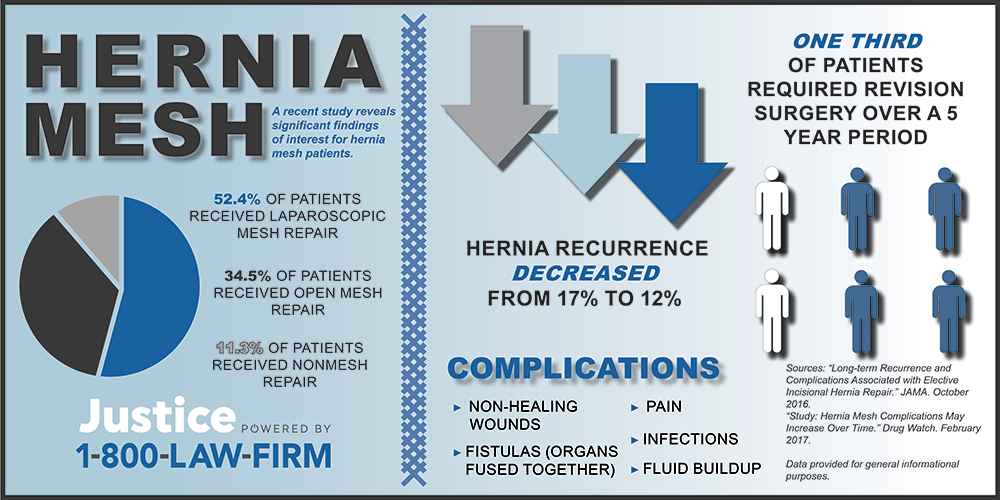Hernia Mesh
Prosthetic Mesh Breeds Despair After Repair
It happens. After surgery, you’re feeling better and the next thing you know, there is a lump in your abdominal area that wasn’t there before. You talk to your doctor and discover you have a ventral hernia, also known as an incisional hernia.
These types of hernias occur when fatty tissue or internal organs migrate through a weak spot at the site of a previous surgical incision. Ventral hernias can develop weeks or even years after surgery. These types of hernias are very common. An estimated 4 million laparotomies are performed in the United States every year. Approximately 2-30% of these surgical procedures produce an incisional hernia.
Incisional hernia repair is one of the most common general surgical operations. Prosthetic mesh is often used to strengthen these repairs. There are many reasons why hernias develop including:
- Congenital defect
- Weakness of the abdominal wall due to surgical incision
- Pregnancy
- Injuries to bowel area
- Family history
- Frequent heavy lifting
If you had hernia repair surgery between October 2010 and June 2016 and experienced complications including revision surgery, you may be entitled to compensation.
In May 2016, Ethicon, a division of Johnson & Johnson, issued a formal withdrawal of its Physiomesh product after an analysis of unpublished information found higher than average recurrence of hernias and an increase in reoperations when Physiomesh was used in the initial surgical procedure. Physiomesh is among other mesh products have been linked to dangerous complications in patients that had hernia repair surgery.
Complications experienced by patients that received prosthetic mesh include:
- Hernia recurrence
- Severe pain
- Infection
- Swelling
- Adhesion
- Intestinal blockage
- Mesh migration
- Mesh shrinkage
- Surgery to remove the mesh
Understand Your Legal Options
Our legal team has years of experience helping patients who received defective medical devices pursue the justice they deserve. All consultations are completely free and confidential. Call 1-800-529-3476 today.

